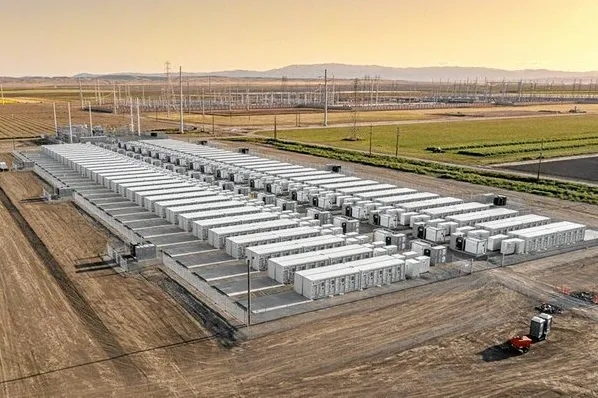Meeting Trump's agenda will cost $100bn and needs policy clarity, says energy storage industry
Sector aims to satisfy 100% of domestic energy storage project demand, while helping President Trump deliver on his 'energy dominance' agenda for country

The US energy storage industry has pledged to invest $100bn into building and buying American-made grid-scale batteries by 2030, ensuring low-cost electricity and helping President Donald Trump deliver on his “energy dominance” goal for the country, according to American Clean Power Association (ACP).
Eleven are now in operation or under construction. ACP expects the investment to create 350,000 jobs over the next five and one-half years. US grid-scale storage installations surpassed 10.9GW in 2024.
“Today’s historic commitment will invest billions of dollars into American communities and position the United States as a manufacturing leader in battery technology that is critical to national and grid security,” said Jason Grumet, CEO of ACP.
The sector aims to advance a manufacturing expansion in the US that could enable American-made batteries to satisfy 100% of domestic energy storage project demand by 2030.
Other benefits include advancing American battery manufacturing leadership, enhancing US energy security, providing energy affordability and reliability, and driving international competitiveness, according to ACP.
To fulfill this commitment, the sector will need a “pro-business environment, supported by stable tax and trade policy and streamlined permitting, is essential to the industry fulfilling this commitment,” it said, adding, “Policy certainty is critical.”
The opposite has been the case since Trump took office 100 days ago.
For example, fellow Republicans with majorities in Congress have yet to clarify whether they will move to rescind the 2022 climate law as he wants, one of his higher profile campaign pledges last year.
The Inflation Reduction Act’s long-term generous federal tax credits for energy storage appear at risk, although the industry could have enough Republican support to fend off their elimination. Democrats are unanimous in supporting their continuation.
Press leaks in recent weeks suggest Republican leaders could accept a four-year sunset for the credits and more difficult eligibility criteria. Whether Trump would is another question.
Investors can claim credits for new or expanded domestic manufacturing capacity, extraction and refining of critical minerals used in batteries, and production of each individual battery component.
Also confusing are Trump’s fickle tariff policies that threaten to upend global supply chains for battery components and raise costs for an industry still in the relatively early stages of development. Big users such as electric utilities are increasingly requiring battery makers s to assume most, if not all, tariff risk in supply contracts.
Trump is also taking a dim view of American companies partnering on battery supply chain investments here with those from China and other countries that he dislikes, who could potentially benefit from climate law tax credits.
In contrast, his administration’s push to streamline federal permitting and approvals for energy-related infrastructure projects could significantly reduce sector development costs.
ACP asserted analyses show that recent additions of 5GW of energy storage in Texas enhanced grid reliability and kept electricity costs down for consumers.
“By releasing stored energy when the grid needed it most, grid batteries contributed to more than $750m in cost savings for Texans during the summer of 2024,” it said.
In January 2024, during a single winter storm event, “energy storage worked with natural gas generation to create additional cost savings of more than $700 million for Texas, avoiding costly power outages,” said ACP.
(Copyright)